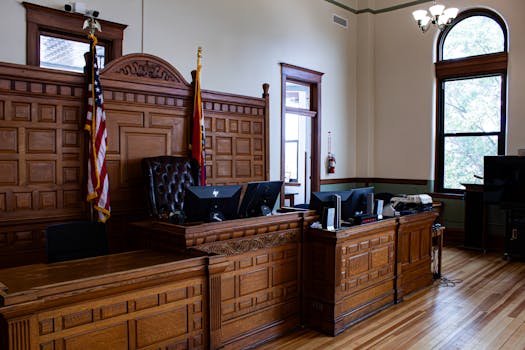

U.S. Judge James E. Boasberg has criticized the government for providing inadequate information on migrant flights. The judge's comments come amidst ongoing scrutiny over the handling of migrant families at the border. The issue raises questions about transparency and accountability in immigration policies. This development sheds light on the challenges faced by authorities in managing the influx of migrants.
Government AccountabilityU.S. Judge James E. Boasberg's criticism of the government's response to providing information on migrant flights highlights the issue of government accountability. As a federal judge overseeing a case related to the deportation of migrant families, Boasberg's assessment that the information provided was "woefully insufficient" raises questions about transparency and oversight.
The judge's remarks underscore the importance of holding government agencies accountable for their actions, especially in cases involving vulnerable populations such as migrants seeking asylum. With the lack of detailed information on the flights transporting migrants, concerns about potential human rights violations and due process issues come to the forefront.
Boasberg's demand for more comprehensive answers from the government signals a push for transparency and adherence to legal standards in handling immigration matters. As the judicial branch seeks to uphold the rule of law, the government's responses will be closely scrutinized for compliance with legal requirements and ethical considerations.
Legal Challenges MountDespite the government's attempts to address concerns about the secrecy surrounding the migrant flights, legal challenges continue to mount.
Lawyers representing migrants argue that the lack of transparency violates their clients' rights and makes it difficult to ensure their safety and well-being during transport.
U.S. Judge James E. Boasberg called the information the government had provided him so far “woefully insufficient.” This lack of transparency has raised concerns among legal experts and advocates who believe that the government is not being forthcoming about its actions.
Legal experts criticize government responseAccording to legal analyst Rachel Lewis, the judge's criticism of the government's response to the court's inquiries is a significant development. Lewis stated, "The lack of transparency and detail in the government's answers raises serious concerns about accountability and adherence to legal procedures."
Final ThoughtsAs Judge Boasberg continues to press the government for more transparency regarding the controversial migrant flights, the public is left questioning the true intentions behind these operations. The lack of adequate information provided by the government only adds fuel to the fire of speculation and concern surrounding the treatment of migrants at the southern border.
With ongoing legal battles and mounting scrutiny, it remains to be seen how the government will address these issues moving forward. The fate of these migrant flights and the individuals on board hangs in the balance as the larger debate over immigration policy in the United States rages on.
Politics & Global Affairs
With over a decade of experience covering government, policies, and international relations, Alex dives deep into political dynamics and geopolitical shifts. His work is dedicated to cutting through partisan noise and delivering objective, fact-driven political insights.